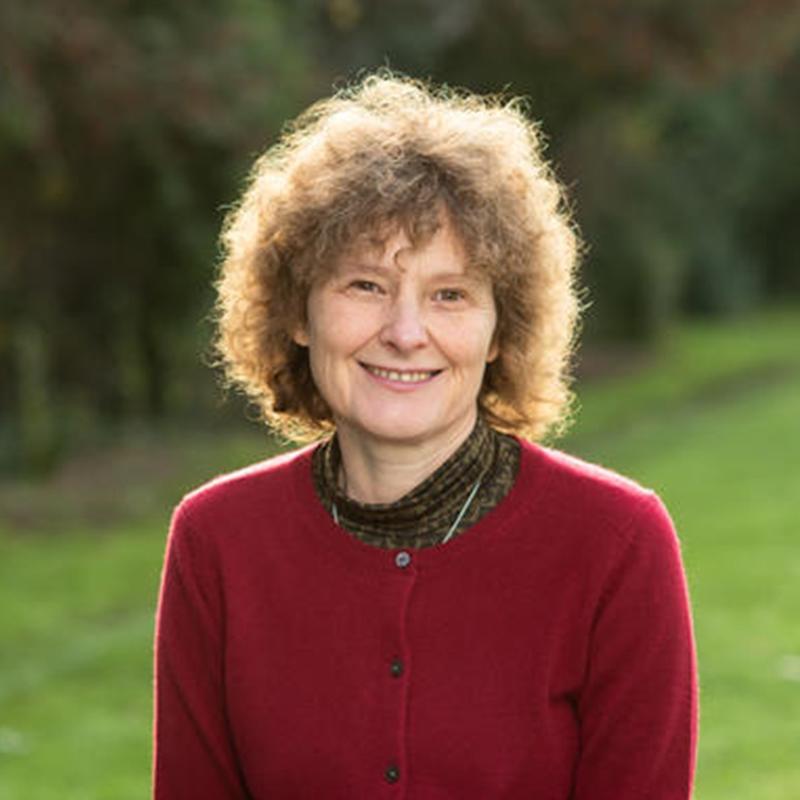ALUMNI STORIES: 'EVERYONE HAS A PART TO PLAY BY LETTING OUR LEADERS KNOW THAT CHANGE NEEDS TO COME NOW'

ALUMNI STORIES:'EVERYONE HAS A PART TO PLAY BY LETTING OUR LEADERS KNOW THAT CHANGE NEEDS TO COME NOW'
Professor EJ Milner-Gulland (New College, 1985), Tasso Leventis Professor of Biodiversity, shares her love of Oxford, excitement about the latest cutting-edge developments in zoology and her hopes for COP26
Published: 25 August 2021
Author: Zoe Burns
Share this article
Tell us about your journey, from studying Pure and Applied Biology at Oxford, to your PhD at Imperial, to where you are today.
Pure and Applied Biology was a great foundation for a career in interdisciplinary conservation science. Unlike most degrees at the time, it allowed me to study a spectrum of topics, all the way from pure evolutionary theory to the cultivation of the potato, and including really useful applied topics like agricultural economics and development studies. I was very fortunate to be able to do this degree (especially as it only lasted for about five years!).
After my PhD on the bioeconomics and population ecology of hunted large mammals, I came back to Oxford as a Junior Research Fellow and Cox Fellow at New College, then I went straight to a Lectureship in mathematical ecology at Warwick university. From there I went back to Imperial, first as a Lecturer in resource economics, and latterly as a Professor of conservation science. The interdisciplinary grounding I got at Oxford enabled me to move between all these fields! Then after 22 years I came back to Oxford as Tasso Leventis Professor of Biodiversity.
How do you think that Oxford has changed you?
I’ve been associated with Oxford in so many different roles now, from undergrad, to researcher, to alumnus, spouse of a Fellow, and then Professor – with a stint as an external examiner for Finals in the interim. So it’s changed me in many ways over the years. However I still remember myself as a thrilled but apprehensive 18 year old arriving all those years ago, and discovering the many ways in which Oxford opens your mind and captures your soul!
Where is your favourite place in Oxford?
It has so many beautiful places, and I’m still discovering more! So it changes, but right now it’s the new discovery I made in lockdown – Aston Eyot. It’s a former rubbish tip right by the river, which has become a wild haven for nature.
What do you love most about Oxford?
It’s a magical city – small enough to get round easily on foot or by bike, but so varied, culturally and architecturally, and with veins of nature extending right into its very heart.
What’s the most valuable advice anyone has given you?
It was actually at Imperial College, from one of the very few female Professors who was there when I was a young lecturer: It is perfectly possible to make a successful career in academia while raising a family, you don’t have to work evenings and weekends, and don’t let anyone tell you otherwise.
COP26 is bringing countries together to protect the world’s natural habitats. What goals, targets and action would you like to see agreed?
We need to agree that the future wellbeing of people, the recovery of nature, and limiting climate change are inter-twined. You can’t succeed on one front without also tackling the others. There are some difficult trade-offs to address, but also some important synergies.
Are you feeling optimistic that COP26 will accelerate action to tackle the climate crisis, protect communities and natural habitats? Are we capable of working together to secure global net zero by 2050?
I’m not particularly optimistic at the moment – although this year has been a wake-up call like no other. If we can’t act now, after COVID and the devastating floods, fires and heatwaves we’ve seen this year, not to mention large-scale continued habitat destruction, when can we act?
Meeting Minds Global 2021 showcased the cutting-edge work of three Zoology Department researchers. Please can introduce one of the areas of work and its real-world impact?
I’m particularly excited about Marianne Sinka, who introduces HumBug, a tool for monitoring mosquitoes using their sounds, that can be used on a cheap smart phone. It will help people to know when dangerous mosquitos are inside their homes, and conversely, when the mosquitos around them aren’t dangerous.
What would be your elevator pitch to convince people to watch the ‘What’s new in Zoology?’ Meeting Minds Global talk?
The COVID pandemic, and the ongoing concerns about the loss of nature, have illustrated very clearly the importance of fundamental and applied biology to help humans to survive and thrive. Unless we understand the natural systems on which we all depend, we will miss many opportunities to improve the health, wellbeing and prosperity of people around the world.
What do you hope people will take away from your Meeting Minds Global session?
How exciting, varied, and relevant to everyday life biology is – and how it is possible both to answer fundamental, curiosity-driven, questions and to make a real difference to our planet.
You are Co-Director of the Oxford Martin Programme on Wildlife Trade. What are the biggest challenges in changing consumer behaviour to reduce trade in wildlife products? How is the programme helping to overcome these challenges?
The biggest challenge is trying to align changes in societal norms with regulation and law enforcement, right the way down the supply chain from consumers to hunters. You can’t solve this problem just by nudges – nor can you solve it by passing laws which are ineffectively enforced and noone follows. The other problem is the polarisation of people’s thinking (especially on social media) into simplistic solutions and “othering” of people who don’t think the same way you do. It’s hard to accept complexity, shades of grey and slow-burn solutions, but that’s the reality of “wicked problems” like the wildlife trade. We have put a lot of energy into exploring this complexity, and proposing ways forward.
Who are the big influencers in the world of conservation at the moment?
Actually, I think everyone is – the general public of the world. Everyone has a part to play in recognising the challenges we face, staying optimistic, and taking action, both in their own lives and by letting our leaders know that change needs to come now.
Log in to My Oxford + (Plus) to catch up with Meeting Minds October 2021 featuring Professor EJ Milner-Gulland, Tasso Leventis Professor of Biodiversity, introducing three researchers from the Zoology Department talking about their cutting-edge work and its real-world impact.















